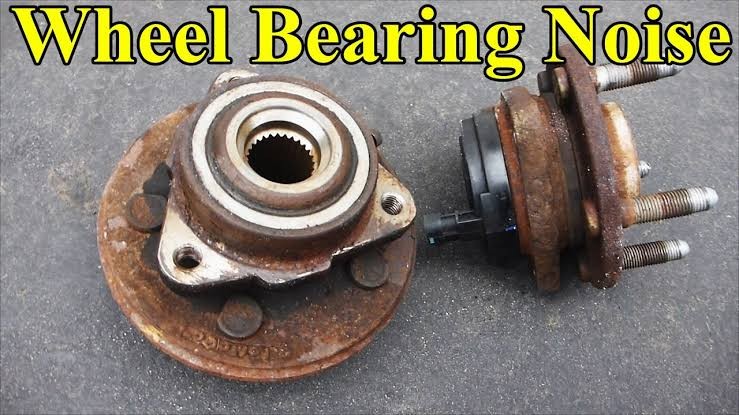Wheel bearings are small metal parts that allow the wheels to spin smoothly and freely on the axle. They are usually sealed with grease to prevent dirt and water from getting in and causing damage.
If you hear a rumbling or grinding noise coming from one of your wheels, you might be wondering if it is safe to drive with wheel bearing noise. The answer is a resounding no. Wheel bearing noise is a sign of a serious problem that can lead to dangerous and costly consequences if ignored.
What are wheel bearings and what causes them to make noise?
A wheel bearing is a set of steel balls held together by a metal ring called a race. They help wheels spin fast with as little friction as possible. They are used on all kinds of vehicles, from bicycles to aircraft and cars . A wheel bearing is located within the wheel hub, which connects the wheel to the axle. Each wheel has its own set of wheel bearings. However, over time, the grease can leak out, the seals can break, or the metal can wear down due to friction. This can cause the wheel bearings to make a loud noise, especially when turning or driving at high speeds.
What are the risks of driving with wheel bearing noise?
Driving with wheel bearing noise is not only annoying, but also extremely dangerous. Here are some of the risks you are taking if you ignore the warning signs:
- Loss of control: A worn or damaged wheel bearing can cause the wheel to wobble, vibrate, or even lock up. This can affect the steering, handling, and braking of your car, making it hard to control or stop. You could lose control of your car and skid, spin, or flip over, especially on wet or slippery roads.
- Accidents: A faulty wheel bearing can also cause the wheel to detach from the axle and fly off your car. This can create a hazard for other drivers on the road, who might not be able to avoid hitting the loose wheel or your car. You could cause a serious collision that could injure or kill yourself or others.
- Damage: Driving with wheel bearing noise can also damage other parts of your car, such as the axle, suspension, brakes, and tires. This can result in expensive repairs or replacements that could have been avoided if you had fixed the wheel bearing in time.
How to fix wheel bearing noise?
The only way to fix wheel bearing noise is to replace the faulty bearing with a new one. This is not a DIY job, as it requires special tools and skills. You should take your car to a professional mechanic as soon as possible and have them inspect and replace the wheel bearing. The cost of replacing a wheel bearing can vary depending on the make and model of your car, but it is usually cheaper than paying for the damages or injuries that could result from driving with wheel bearing noise.
Conclusion
Wheel bearing noise is not something you should ignore or delay fixing. It is a serious problem that can endanger your life and others on the road. If you hear a rumbling or grinding noise from your wheels, do not drive your car until you have it checked and fixed by a mechanic. Driving with wheel bearing noise is not worth the risk.

Comments (0)
Please login to join the discussion
Be the first to comment on this article!
Share your thoughts and start the discussion